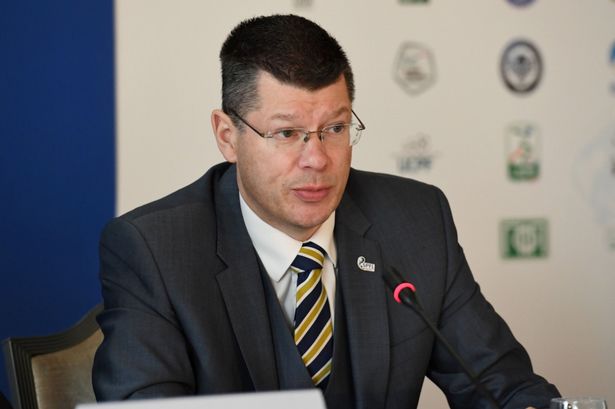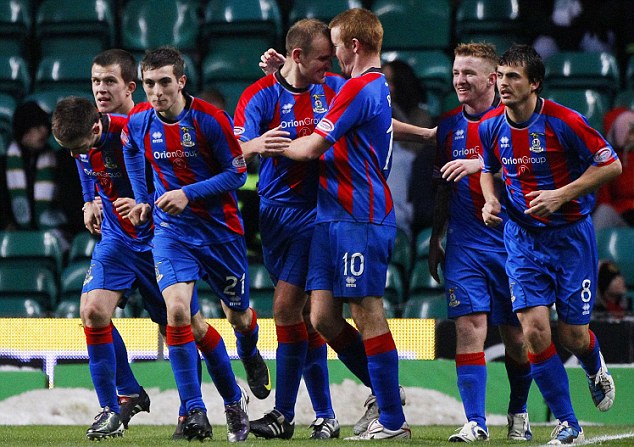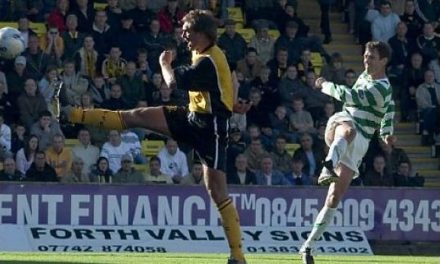
DONCASTER & McKENZIE
On 26th July Neil Doncaster was written to requesting a meeting to discuss the full implications of the Supreme Court decision to confirm that the Rangers Football Club (In Liquidation) use of EBTs had been unlawful and that tax was due. To be fair to Neil he responded within 24 hours agreeing in principle and confirmed that he would liaise with Celtic to facilitate. Celtic duly did and on Monday 14th August myself and 3 others got a 2 hour sit down with Neil Doncaster & SPFL lawyer Rod McKenzie. Whilst the meeting was not allowed to be audio recorded, they informed us that we could take notes and they would identify if anything was off the record. As nothing was identified as being off the record, those of us at the meeting have compiled our notes, pulled them together and below is a minute of that meeting;
In the meeting Neil Doncaster (ND) was more willing to engage than Rod McKenzie (RM), who we found to be obtrusive, pedantic and continually picking out where one word did not fit with his narrow, technical legal definitions.
He was most argumentative in those areas that would be up for debate and where it was felt they were not speaking from strong, justified position. At times McKenzie’s meandering answers seemed to take the question asked, towards his preferred answer.
RM and ND insisted the legality of EBTs was irrelevant to the SPFL as prior to 2011 they had no specific rules on how clubs carried out their tax affairs. This excused the Lord Nimmo Smith Commission (LNS) from regarding the five cases of guilt accepted during FTT, or the accepted liability for the Wee Tax Case. The lawfulness of tax affairs had not been considered by the football authorities as the SPFL believed Rangers simply misunderstood their tax position, not that they were illegal.
McKenzie said Rangers believed their tax should have been one figure; HMRC went to court to establish it should have been higher. He further added that many clubs have gone into administration without paying the full amount of due tax, so Rangers were not an exception. ND pointed out that Craig Whyte had been charged by the SFA for non-payment of taxes, yet no charge has ever been laid against RFC by the SFA for a much larger non payment of tax.
The SPLs only interest was in player registration. LNS punished Rangers for this and for failure to pay tax on such a scale.
The SPL set up an investigation from 1 July 1998; this was not the initial advertised date of the LNS Commission. McKenzie carried out the investigation but Rangers failed to provide documents asked for prior to November 2000, so he could only address the subsequent period to LNS. The administrators of Rangers said the earlier documents were held by Murray Group and that they were unable to acquire them. McKenzie prevaricated when asked what steps he took to acquire the documents.
RM asserted that the WTC was dealt with in the LNS Commission as 3 players; Ronald De Boer, Flo and Moore were all addressed in the Commission. De Boer, Flo and Moore had both DOS and EBTs. The earliest was from 2000 during the operation of the Discounted Options Scheme. No distinction was drawn between the “Big” and “Wee” tax cases as ND & RM continually asserted that LNS was not about tax. It was all about the player registration. Those 5 EBT cases where guilt was admitted, were similarly not treated differently by LNS.
Most of his (RM) information for the Commission was taken from the BBC documentary. Rangers only provided him with 29 almost identical documents, with names and other information redacted. He was given documents from another source but would not state what this was. It was only during the enquiry that Duff and Phelps confirmed the redacted documents. All initial enquiries were passed by them to MIH and their lawyers who would not forward the documents requested.
RM pointed out that they were charged by LNS for non cooperation with the enquiry (Issue 4 addressed by LNS)). For this they were merely admonished. (For information the relevant part of the adjudication is below).
“Failure to respond timeously to legitimate requests for the provision of information is a serious breach of the rules. If the football authorities are to perform their functions effectively, such requests by them must be met. In the present case, at the time that the initial request was made, and throughout the subsequent period, Oldco was in administration and the administrators were acting as its agents. The administrators had the responsibility of discharging Oldco’s obligations, including those to the football authorities. They did not do so, and thus caused Oldco to be in breach of the Rules. We have decided, however, without wishing to detract from the gravity of the breach, that no separate financial penalty should be imposed on Oldco in this regard. Instead, we shall impose an admonition.”
They were asked if the SPFL would work against or block a Judicial Review. After a bit of conversation both said they wouldn’t be obstructive. When they were asked if they would be willing to have a preliminary meeting with counsel, at the same moment that Neil Doncaster said yes, McKenzie answered, “Depends on who it is”. On the subject of a Judicial Review, McKenzie was doubtful that it would get standing. Neil Doncaster said that would ultimately be a matter for the clubs to decide if the SPFL would contest the right of fans to have a review,
McKenzie suggested a Judicial Review could only look at two items:
- The conclusion by the Lord Nimmo Smith Commission that Rangers did not play ineligible players.
- The level of penalty arrived at by the Lord Nimmo Smith Commission was insufficient.
Point 1 goes to Sandy Bryson’s evidence. When it was stated that Sandy Bryson interpreted registration rules in a way that came as a surprise to most in Scottish Football, McKenzie commented – “It was an interpretation that came as a surprise to me too.”
On more than one occasion an attempt was made to discuss LNS and the legality position but McKenzie adopted a defensive, argumentative position, saying that LNS did not and could not review the issue of non payment of tax, dismissing comments around the potential view of Nimmo Smith around the ultimate alternative opinion of the Supreme Court.
McKenzie’s view was that LNS only looked into player registration and not tax. LNS decided that side contracts did not provide competitive advantage but were a breach of rules and therefore they imposed a £250,000 fine. (Nb they confirmed that the£250,000 LNS fine was ultimately deducted from money due to Newco. As well as this, costs were also deducted.)
It was suggested in the meeting that one of the reasons RFC did not provide contracts was because they felt it COULD have had a bearing on whether these “loans” were classed as remuneration. Therefore using side letters helped to hide the payments from HMRC and allowing them to keep using the scheme, and potentially providing an advantage but McKenzie was adamant that the verdict of the Supreme Court or FTT had no bearing on LNS as the Commission was not looking at tax issues.
They were also asked about the new club issue. RM said they were same club because ultimately they (the SPFL) wrote the rules. They were dismissive about even debating the issues “We’d never agree” and treated it as a debating point rather than a fundamental belief of many fans. When asked for a description that could be written down and would stand up in court, they talked about it being “a feel” an “emotional attachment”. When pointed out this “feeling” would not stand up in court, RM responded – “Anyway this is not really relevant to the discussion”
ND repeated previous public assertions that he came from a “different football culture” where newcos were “normal” and “accepted”. RM gave a number of examples in Scottish football where tax liability was ditched e.g. Hearts, Dundee, Gretna. It was pointed out to RM that none of the other Scottish cases he cited, pointed to deliberate concealment of tax liability over a sustained period of time.
ND cited the cases of Leeds, Bristol City etc. in England. It was put to him that despite the evidence that non payment of tax was on the increase both here and in England there was no explanation offered as to why this specific issue wasn’t in the SPL Rules prior to 2011(and before the time of Neil Doncaster).
When asked when they were first made aware of the looming RFC admin RM responded,” the day before they filed for administration”. (February 2012). Both Neil Doncaster and Rod McKenzie denied specifically knowing any earlier than this beyond rumours in Scottish Football.
They were specifically asked about the SPL board meeting of 31st October2011 and a reconvened board meeting in Mid/late November that year where the SPL/Fans TV deal being discussed. When it was suggested to Neil Doncaster that the exploration of an SPL TV deal was dropped due to “changed circumstances in Scottish football” he denied that this was because of meetings or contact with Rangers FC officials about their intention to enter administration. They continually denied any advance knowledge even when it was put to them that there are documents in the public domain which suggest the contrary.
At one point ND asked, “Where are you going with this?”
It was suggested to them that some in Scottish Football would want to lend a helping hand to RFC to prevent them from defaulting early in the Season (and ahead of the transfer window). An example was provided of Dunfermline who were one match away from being unable to meet their fixture obligations – (v Falkirk in 2013) and defaulting on their fixtures. Their case was treated very differently
Neil Doncaster disputed this as a potential scenario, as an earlier Administration of RFC (less 3 months of PAYE/NI) would have meant HMRC not being the preferred creditor, able to block the CVA. It was commented on by those in the meeting, that he had an impressive grasp of these potential HMRC CVA blocking percentages from that period in late 2011 (prior to admin in 2012).
When the prospect of SPFL board minutes being opened up to a transparent investigative enquiry were discussed, they expressed unhappiness at this given the nature of some of the sensitive (including commercial) discussions which take place. Where they to be asked for specific information they may provide it (potentially redacted) but there would be no willingness to provide general access to SPFL documents from that period. This again suggested the need to ask specific legal questions rather than provide full transparency. Those at the meeting were given the impression that the full transparency fans have asked for was in question even from the SPFL. There would potentially be no obligation of anyone to co-operate with an enquiry.
A discussion also took place about the SFL. Both ND and RM asserted that the SFL’s record keeping was poor and would not provide much for an inquiry. When the issue of potential title stripping was discussed, it was revealed that the decision to recognise Newco’s claim to RFC’s titles, was taken by the SFL board including David Longmuir and Jim Ballantyne, when they decided to invite Newco into the SFL 3rd Division.
When it was suggested to ND that Jim Ballantyne’s documented shareholding in Rangers RFC could have created a conflict of interest in this decision, ND agreed that this potentially could be looked at by an inquiry but that there would be no obligation by anyone including Jim Ballantyne to co-operate with the inquiry. He did not question our understanding that Ballantyne did have a shareholding in Rangers as documented by a Channel 4 investigation.
https://www.channel4.com/news/by/alex-thomson/blogs/potential-conflicts-interest-heart-scottish-football
Given their assertion that the SFL’s record keeping was poor, their view was that it was unlikely that a record or a minute of the decision to recognise Newco’s claim to Rangers historical titles, would be available however this issue could potentially be re-examined in the future by an enquiry. The SPFL bore no responsibility for this state of affairs of the organisation they merged with. Their view on the potential lack of co-operation by figures still active in Scottish football was noted.
At the time of the meeting, there has been no response so far by the SFA to the SPFL call for an inquiry. Both ND and RM were of the view that the SFA needed time to consult the various stakeholders but it transpired that the SFA hasn’t been written to yet by the SPFL but that they have been sent a copy of the press release instead. ND agreed that a letter would be formally sent if no response received. They did not suggest a time frame for this.
Some of those still active in Scottish football, who were directly involved in the administration of Rangers FC during the EBT years, were discussed, with a view to ascertaining the view on how suitable it was for them to be still intrinsically involved in the running of the game, including on SFA committees.
They both seemed surprised that a Rangers official was on the Club Licensing Committee of the SFA in the year that Rangers were cleared to play in Europe despite their admitted tax liability in the Wee Tax Case. They were also unaware of the official’s current role at the SFA or even the workings of the SFA Committee he now serves on. RM was of the opinion that some officials were less important in the administration than others and made the point that it is the only the SFA who can rule on who is Fit and Proper. RM was also of the view that it is only Directors of a club/company (???) who can be charged with disrepute. They accepted that there were a number of directors of Newco this could potentially apply to.
Both were also of the belief that David Murray would not be welcomed back into Scottish Football.
The meeting concluded. It was initially requested for the purposes of accurate record keeping, not broadcast that a recording be made of the meeting. The SPFL representatives did not agree to this but stated that everything was “on the record” unless directed otherwise. No such direction was given.






I followed the Rangers Tax Case blog religiously for two years, and at the time was as certain as anyone could possibly be that Ibrox stadium would be replaced by a supermarket.
After everything that’s happened since though has me doubting this saga will never have an ending.
An interesting article. I’d be interested in what the Fan’s Media expected from this meeting, whether that was
achieved, and what they intend to do next
I wrote to Doncaster asking for a meeting – at least he accepted the request. I suppose it’s what we all seek sometimes which is to hear stuff from the horses mouth. Part of it was to see what/if there are holes in their argument that could be used in the Judicial Review stuff (at least one of those present is heavily involved in helping that get pulled together)